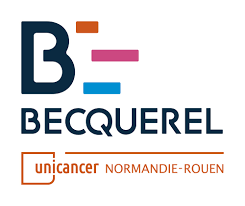Cognitive change in breast cancer patients up to 2 years after diagnosis
Résumé
BACKGROUND: Using the large nationwide CANTO cohort, we assessed cognitive functioning change after cancer treatments in a subgroup of breast cancer patients. METHODS: We included patients with newly diagnosed invasive stage I-III breast cancer enrolled in the CANTO sub-study focused on cognitive evaluation and healthy control women matched for age and education. Episodic and working memory, executive functions, processing speed, attention, self-report cognitive difficulties (SRCD), fatigue, anxiety/depression were assessed with neuropsychological tests and self-report questionnaires, before treatment (baseline), about 1 (year-1) and 2 years (year-2) after diagnosis. We used linear mixed models to study changes in cognition and tested the effect of adjuvant chemotherapy. RESULTS: We studied 276 localized breast cancer patients (62% chemotherapy (CT+)) compared to 135 healthy controls. After adjustment, patients had lower baseline working memory, processing speed and attention scores than healthy controls (p ≤ 0.001), and the difference remained significant over follow-up for working memory and processing speed. Executive function scores were similar between groups at baseline but decreased at year-1 among patients compared to healthy controls (p for change = 0.006). This decrease in CT+ patients was significant when compared to healthy controls scores (p for change < 0.001). After adjustment, SRCD were similar between breast cancer patients and healthy controls at baseline but increased in patients after treatment at year-1 (p for change = 0.002). CONCLUSIONS: Cognitive difficulties are an important concern in breast cancer patients, starting at diagnosis. Cancer treatments induce executive function decline and SRCD, which decrease over follow-up.
Domaines
Santé publique et épidémiologie| Origine | Fichiers produits par l'(les) auteur(s) |
|---|
